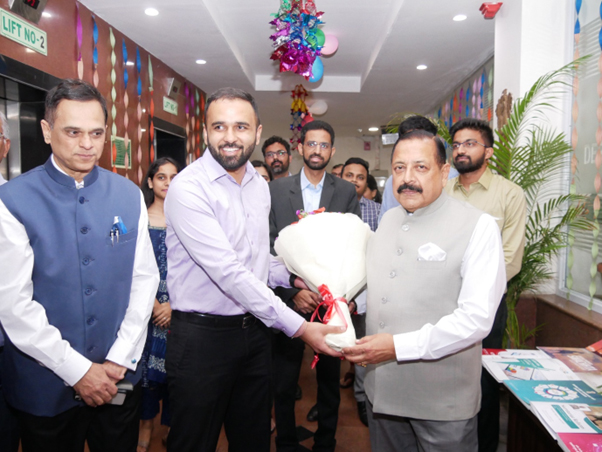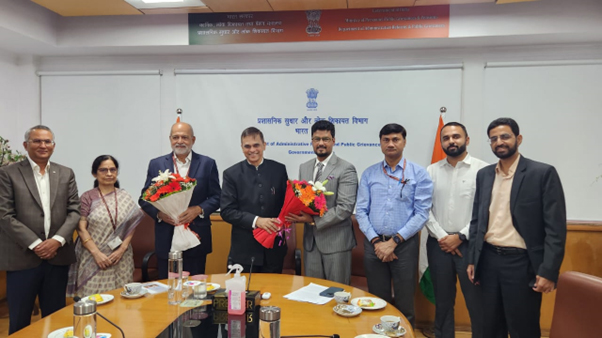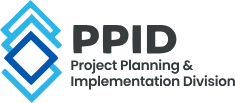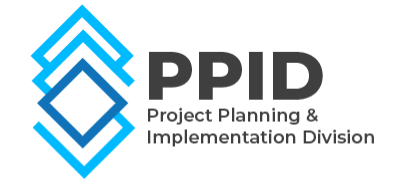

Project Details
Public Grievances
Secretariat Reforms
Challenge
“No government can claim itself to be accountable, responsive and user-friendly unless it has established an efficient and effective grievance redressal mechanism. In fact, the efficiency and effectiveness of any organisation can be measured by its grievance redressal mechanism as it provides important feedback on its working. Thus, grievance redressal should be one of the core components of good governance” – 121st Report of the Parliamentary Standing Committee on Personnel, Public Grievances, Law and Justice
QCI has been continuously assisting DARPG in the management, monitoring and streamlining of CPGRAMS since 2015. It started with Analysis of Public Grievances for the Top 20 Ministries/Departments, later extended to Top 40, with systemic reforms recommendation to eliminate the root causes. This formed the basis of multiple interventions driven by DARPG with QCI to reform the CPGRAMS system.
Drawing inspiration from Hon’ble Prime Minister’s vision and mission to institutionalize swachhata and minimize pendency in Government the Department launched the Special Campaign for Disposal of Pending Matters in 2021. This was scaled up into the Special Campaign 2.0 in 2022 and Special Campaign 3.0 in 2023. The Campaign aims at ensuring timely and effective disposal of Public Grievances, References from Members of Parliament, State Governments, Inter-Ministerial Consultations and Parliamentary Assurances by each Ministry/Department and its attached/subordinate offices. As part of swachhata, it focuses on reviewing and weeding out files, freeing up office space, disposal of scrap and conducting cleanliness campaigns.
With increased focus on good governance, there has been a great change in the conventional role of the government and the bureaucracy to promote accountability, efficiency, effectiveness, transparency and decentralization. The Department of Administrative Reforms and Public Grievances (DARPG) has been designated as the nodal ministry for encouraging a multi-pronged approach by bringing together diverse elements, performing rigorous analysis and pursuing cohesive advocacy to bring about change in systems, process and structures of the government. This also includes the march towards a digital secretariat through eOffice and other digital initiatives, driving effective eGovernance.
Approach
The CPGRAMS portal was streamlined and a new version CPGRAMS 7.0 was conceptualized wherein grievances could be auto-forwarded to the last mile officer through user friendly categorization. This was initiated to transition from physical movement of grievances or manual forwarding of grievances to the concerned officers. The QCI team piloted the CPGRAMS 7.0 version in Department of Posts, wherein 1.5 lakh offices were mapped to concerned officers onto the system. Subsequently, the team studied each Ministry/Department in-order to develop the framework of categorization of grievances and mapping of concerned officers and engaged with each Ministry/Department, handholding them throughout the process.
- A team of QCI is currently engaged with DARPG as a Project Management Unit (PMU), to provide policy support, analytical support and monitoring for CPGRAMS.
- The team engages with the various partners of DAPRG, all Central Ministries/Departments, NIC to effectively manage the grievance redressal system.
- QCI prepares a monthly report each for the Central Ministries/Departments and the States.
- The monthly reports highlight the status of pendency, quality of disposal and performance of Ministries/Departments through various analytics, feedback analysis and grievance redressal index.
- Additionally, the team assists the department in capacity building of Central Government PG Officers, grievance analysis, reports, presentations and carrying out various grievance based studies.
- QCI conducted the Third Party Assessment of the 1st Special Campaign, by physically visiting all Ministries/Departments and assessing their swachhata levels through a comprehensive questionnaire.
- Subsequently, a PMU was setup at DARPG for monitoring and reporting of the Special Campaign 2.0
- The team conducted the assessment for the Special Campaign 2.0 as well, through a dedicated dashboard. The Report captured Best Practices under 9 categories from across the country. The team also submitted a Social Media Analysis Report for the Campaign
- QCI monitors the Secretariat Reforms through a detailed dashboard accessible to all Ministries/Departments and analyses the reported data in order to release a Monthly Report
- The Report highlights the pendency performance, the best practices and snapshots of the cleanliness campaigns, along with the administrative and digital initiatives and eOffice adoption and analytics for all Ministries/Departments in the Central Secretariat.
- QCI also undertook the Impact Evaluation of the Initiatives for Increasing Efficiency in Decision Making in the Central Secretariat.
- As part of strengthening eGovernance Service Delivery in the country, QCI has also set up a PMU to monitor the implementation of the recommendations of the National eGovernance Service Delivery Assessment 2021, in line with the seven focus areas of e-governance and assists DARPG in generating the monthly reports on NeSDA Way Forward for States/UTs.
Outcome
- All 90 Ministries/Departments onboarded on to CPGRAMS version 7, enabling auto-forwarding of grievances to the last mile officer, through user friendly categorization and specific information provided by the citizens
- Reduction in average disposal time of 5 days, across CPGRAMS
- ~2x increase in grievance redressal officers mapped on CPGRAMS since 2019
- Overall disposal of >1 lakh grievances, by Central Ministries/Departments, and >50 thousand grievances by States/UTs, each month
- Pendency in Central Ministries/Departments at an all-time low of ~60,000 grievances
- Publishing Monthly Reports since May, 2022
- Published an Annual Report on CPGRAMS 2022, released by Hon’ble MoS for Pensions, Personnel and Public Grievances
- Highlights of the Swachhata Assessment Report of the Special Campaign found mention in Mann Ki Baat by Hon’ble Prime Minister on 26th December, 2021
- The Special Campaign 2.0 was a resounding success with cleanliness campaigns on over 1 lakh sites, freeing 89.8 lakh sq. ft of space and earning a revenue of Rs 370 Cr by scrap disposal.
- Apart from being vastly covered in print media, QCI assisted in campaign having a huge outreach on social media with 67,000 tweets issued by Ministries/Departments creating 9 lakh engagements.
- Secretariat Reforms Monthly Reports prepared since July, 2022
- All 75 Ministries/Departments have been onboarded on eOffice version 7.0
- More than 90% of share of eReceipts and eFile adoption as on April 2023
- Around 75% saturation of mandatory eServices across the States/UTs
- Delayering Reforms added in Central Secretariat Manual of Office Procedures, 2022 restricting channel of submission to 4 levels for file movement.
- Swachhata Assessment Reports and Impact Evaluation of Initiatives for Increasing Efficiency in Decision Making released by Hon’ble MoS for Pensions, Personnel and Public Grievances
REACH US
Institution of Engineers Building,
2 – Bahadur Shah Zafar Marg,
New Delhi – 110002, India.
Phone: +91-11- 2337 9321, 2337 8056, 2337 8217
IMPORTANT LINKS
Visitor Count
Creating an Ecosystem for Quality
Copyright © 2023



